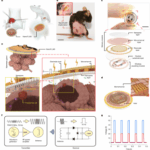Imagine an AI that could save thousands of young lives by predicting sudden cardiac death—a silent killer often striking without warning. Researchers at Johns Hopkins University just made this sci-fi scenario real with their new MAARS system, achieving 89% accuracy in identifying high-risk patients. 🚨
How It Works: Heart Scans + Big Data
The AI analyzes cardiac MRI scans and health records to spot hidden patterns of heart scarring, a key predictor of cardiac arrest. Traditional methods? They’re stuck at 50% accuracy. 💡 "We’re finally closing the gap between guesswork and precision," says lead researcher Natalia Trayanova.
Why Gen Z Should Care
Hypertrophic cardiomyopathy—the condition MAARS targets—is a top cause of sudden death in people under 35. Current guidelines miss half the cases. This AI could be a game-changer for athletes, young professionals, and anyone with a family history of heart issues. 🏃♂️💔
What’s Next?
Johns Hopkins plans to expand MAARS to other heart diseases. Cardiologist Jonathan Chrispin calls it "a paradigm shift in preventive care." Think fewer unnecessary defibrillator implants and more lives saved. 🌟
Reference(s):
cgtn.com





